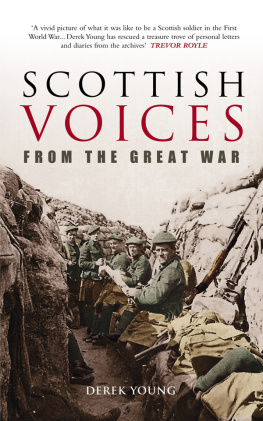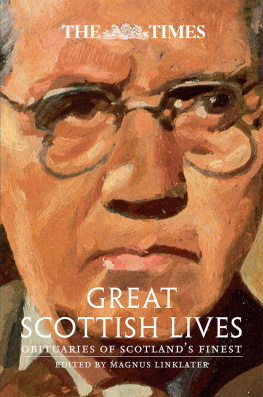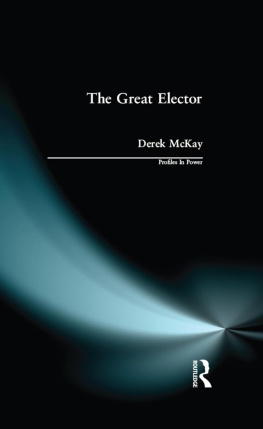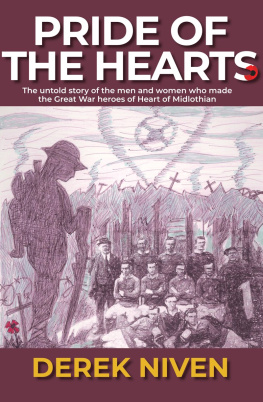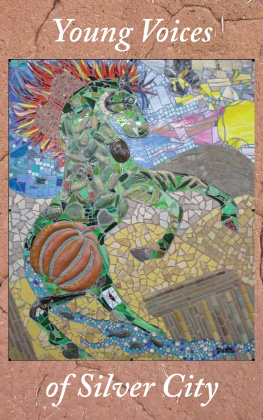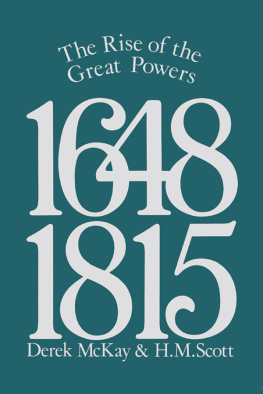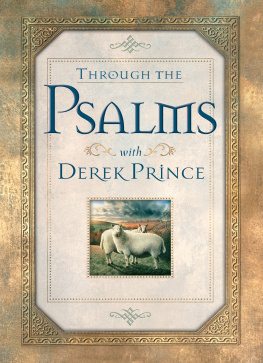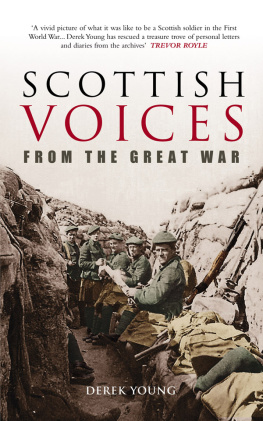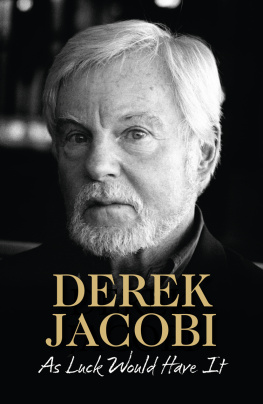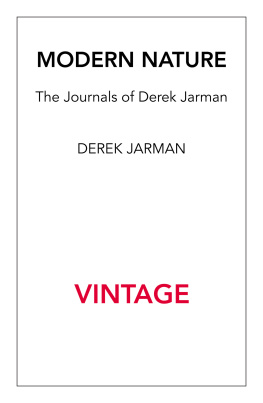Derek Young - Scottish Voices from the Great War
Here you can read online Derek Young - Scottish Voices from the Great War full text of the book (entire story) in english for free. Download pdf and epub, get meaning, cover and reviews about this ebook. year: 2005, publisher: The History Press, genre: Non-fiction. Description of the work, (preface) as well as reviews are available. Best literature library LitArk.com created for fans of good reading and offers a wide selection of genres:
Romance novel
Science fiction
Adventure
Detective
Science
History
Home and family
Prose
Art
Politics
Computer
Non-fiction
Religion
Business
Children
Humor
Choose a favorite category and find really read worthwhile books. Enjoy immersion in the world of imagination, feel the emotions of the characters or learn something new for yourself, make an fascinating discovery.
- Book:Scottish Voices from the Great War
- Author:
- Publisher:The History Press
- Genre:
- Year:2005
- Rating:3 / 5
- Favourites:Add to favourites
- Your mark:
- 60
- 1
- 2
- 3
- 4
- 5
Scottish Voices from the Great War: summary, description and annotation
We offer to read an annotation, description, summary or preface (depends on what the author of the book "Scottish Voices from the Great War" wrote himself). If you haven't found the necessary information about the book — write in the comments, we will try to find it.
Scottish Voices from the Great War — read online for free the complete book (whole text) full work
Below is the text of the book, divided by pages. System saving the place of the last page read, allows you to conveniently read the book "Scottish Voices from the Great War" online for free, without having to search again every time where you left off. Put a bookmark, and you can go to the page where you finished reading at any time.
Font size:
Interval:
Bookmark:
VOICES
Derek Young is a Research Fellow at the University of Stirling. He was awarded his PhD in History under Hew Strachan at the Scottish Centre for War Studies, University of Glasgow. In writing and compiling this book, Derek Young drew upon previously unused records in regimental museums, local history archives, university collections and national Scottish museums. He also launched a successful public appeal for material in the possession of relatives of Scottish soldiers who fought in the war through Scotlands national and local press and radio. His other books include Scottish Voices from the Second World War, also published by Tempus. He lives in Dundee.
Praise for DEREK YOUNG
VOICES
DEREK YOUNG

This edition first published in 2006
by Tempus Publishing Limited
Reprinted in 2008 by
The History Press
The Mill, Brimscombe Port,
Stroud, Gloucestershire, GL5 2QG
This ebook edition first published in 2016
All rights reserved
Derek Young 2005, 2006
The right of Derek Young to be identified as the Author of this work has been asserted in accordance with the Copyrights, Designs and Patents Act 1988.
This ebook is copyright material and must not be copied, reproduced, transferred, distributed, leased, licensed or publicly performed or used in any way except as specifically permitted in writing by the publishers, as allowed under the terms and conditions under which it was purchased or as strictly permitted by applicable copyright law. Any unauthorised distribution or use of this text may be a direct infringement of the authors and publishers rights, and those responsible may be liable in law accordingly.
EPUB ISBN 978 0 7509 7905 4
Typesetting and origination by Tempus Publishing Limited
eBook converted by Geethik Technologies
I have tried for some time now to think of an introduction to this book. Something witty, contemporary, controversial or even, God forbid, philosophical. I have failed miserably at every attempt, and yet in a strange perverse way for once I am content with my failure. It is not for me to tell the story of events, but for those who served. My role is only to tie events together, join the dots if you like. It is for others to recall the events which had an impact upon all sections of Scottish society. What has been assembled is a picture of the war as seen by those who were there, telling of the dull and the mundane, giving a picture of everyday life in the trenches as well as the excitement of combat. The war brought out the best and worst in people and affected Scots of all ages and from all walks of life the young and the not so young, single men and those leaving behind families, the unemployed and those giving up the luxury of full-time, stable employment.
William Begbie joined the 7th Battalion Royal Scots in the summer of 1914, aged just fifteen years. When Private Begbie came home from the local drill hall and broke the news of his enlistment to his parents they had differing views:
When I arrived home, my mother said Take your uniform back you are too young to be a soldier, but my father only laughed and said to my mother, This will do him no harm Territorials dont go to war.
On 4 August 1914 Begbie was mobilised with the rest of his battalion, one of the youngest members of the British army to go to war. In 1915 at the age of sixteen he was wounded twice in the hell that was Gallipoli. He subsequently served in Egypt and was gassed in France during the last German offensive of the war in 1918. Territorials dont go to war!
The First World War was costly for Scotland. Even now, ninety years after the event, the number of Scottish dead varies depending on where the information is obtained, but the Scottish National War Memorial at Edinburgh Castle records over 147,000 Scottish deaths in the Great War. Second Lieutenant Alan Macgregor Wilson, serving in France with the 8th Battalion Black Watch, spoke for all of us when he wrote:
I do not hear the guns today. Yesterday and today they have been quiet. The lull before the storm. But still the ambulances pass with their freight of sadness. The eternal stream. But how much more sad is the thought of those who have been left. Finding their last resting place in foreign soil. The luxury of a coffin is denied. They are too many these fallen heroes. I wonder sometimes how long will it take for these sons of Britain to be forgotten. Never, I hope, and least when judgement calls.
The Armistice did not signal an end to unnecessary suffering. In the early hours of New Years Day 1919 the Admiralty yacht Iolaire ran aground off the island of Lewis. With lifeboats for 100 and lifejackets for only eighty, the vessel had nevertheless been deemed safe to carry 260 servicemen returning to the island after four years of war. Out of 284 passengers and crew only seventy-nine survived. Men who had suffered four years of the bloodiest conflict the world had ever known drowned within sight and sound of their homes. These men were among the 690,235 Scots who served, not only with Scottish regiments but in every branch of the armed service and in every theatre of war.
In recent years it has become obligatory to attack as naive or idealistic those whose writings in any way imply that there is a futility in war. Naive! Idealistic! I can live with that.
In an age when Scottish regiments are once again facing the threat of amalgamation I would encourage readers to take the time to visit some of the numerous regimental museums scattered across the country. Staffed by dedicated individuals and desperately underfunded, they are part of our heritage. I have always found the staff of these museums to be both helpful and informative. Thomas Smyth, archivist at the Black Watch Museum, Perth, rates a special thank you, as does Lt Colonel Fairrie at the Queens Own Highlanders Museum, Fort George, who was kind enough to assist with photographs. At the regimental museum of the Kings Own Scottish Borderers, Ian Martin also took time to help with photographs and deserves a special mention, while at the Royal Scots Museum, Edinburgh Castle, David Murphy similarly went out of his way to assist.
My thanks also go to the staff of the University of Dundee Archives and especially the staff of the Special Collections, University of Leeds, who, it seems, can never do enough to help.
Finally, I would like to take this opportunity to thank all those who contributed letters, diaries and photographs for inclusion in this book. There are too many to list here but my heartfelt thanks go out to them all.
Derek Rutherford Young
You always walk with your head held high
In quiet innocence you cry
No quarter given, none was asked
All thats left are the memories of a distant past.
Youve known despair, youve known sorrow
Suffered heartache, but you know its going to take
Something soft and gentle to brush away the tears
All thats left are the memories of those distant years.
In silence and in pain you wait patient for the end
Your lifes been full, youve lost old friends
Still, in the autumn of your days, in your old familiar ways
The memories keep flooding back every time that old familiar music plays.
Ruth Ford
Led by the pipes, the 1st Battalion Cameron Highlanders marched out through the gates of Edinburgh Castle, crossed the esplanade filled with cheering onlookers, and trooped down to the train station to embark for France. As they left to take their place with the British Expeditionary Force, crowds of friends and well-wishers gathered at the station to give them a send-off. The battalion was once more going to war. No one on that day realised that few of those leaving would ever return. Across the country, similar scenes were being played out as Scotlands regular and Territorial battalions went through the process of mobilising for war.
Font size:
Interval:
Bookmark:
Similar books «Scottish Voices from the Great War»
Look at similar books to Scottish Voices from the Great War. We have selected literature similar in name and meaning in the hope of providing readers with more options to find new, interesting, not yet read works.
Discussion, reviews of the book Scottish Voices from the Great War and just readers' own opinions. Leave your comments, write what you think about the work, its meaning or the main characters. Specify what exactly you liked and what you didn't like, and why you think so.

